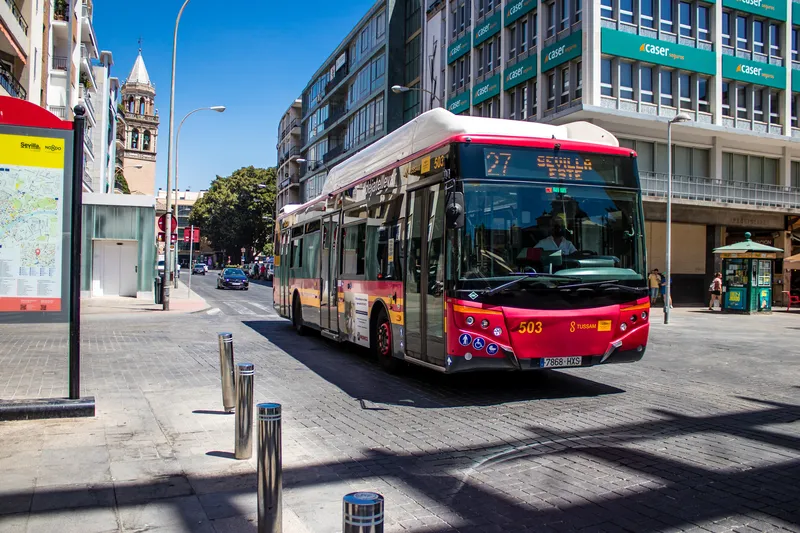German supplier of integrated ITS and ticketing systems for public transport is introducing a range of real time passenger information systems (RTPI), aimed at making public transport an attractive option for travellers, including: Onlineinfo provides reliable RTPI information via the internet, including Google maps, RSS-feeds for disturbance information, PC, mobile web-pages, mobile tagging, web apps and smart phone apps.
May 30, 2013
Read time: 2 mins
German supplier of integrated ITS and ticketing systems for public transport is introducing a range of real time passenger information systems (RTPI), aimed at making public transport an attractive option for travellers, including:
Onlineinfo provides reliable RTPI information via the internet, including1691 Google maps, RSS-feeds for disturbance information, PC, mobile web-pages, mobile tagging, web apps and smart phone apps.
The platform-independent Mobileinfo web app provides the user with reliable information about the next departures via a map display, stop list or a bookmark. The closest stops are determined via GPS.
511 INIT’s web-based on-demand service management tool allows passengers to book their ride online or by phone. Flexible demand-responsive routes allow dispatchers to track on-demand services within their normal displays.
As on-demand transport is often provided by taxis or mini busses not equipped with a regular on-board computer, Init has also developed a dedicated smart phone app, for the management of on-demand transport. The1812 Android-based application presents drivers with a range of information, including their service orders, the route or schedule adherence and navigation functionality.
Init’s new passenger terminal Proxmobil2 provides an easy-to-use ticketing system, featuring a large touch screen, to enable passengers to select the appropriate ticket for purchase or swipe their smartcard or barcode tickets. Proxmobil2 is EMV ready and is able to handle international standards such as VDV-KA,3836 ITSO, Calypso. The intelligent terminal can serve as a stand-alone device featuring WLAN, as well as GSM/UMTS and is available for mobile use in vehicles and for stationary use on platforms.
Onlineinfo provides reliable RTPI information via the internet, including
The platform-independent Mobileinfo web app provides the user with reliable information about the next departures via a map display, stop list or a bookmark. The closest stops are determined via GPS.
As on-demand transport is often provided by taxis or mini busses not equipped with a regular on-board computer, Init has also developed a dedicated smart phone app, for the management of on-demand transport. The
Init’s new passenger terminal Proxmobil2 provides an easy-to-use ticketing system, featuring a large touch screen, to enable passengers to select the appropriate ticket for purchase or swipe their smartcard or barcode tickets. Proxmobil2 is EMV ready and is able to handle international standards such as VDV-KA,









